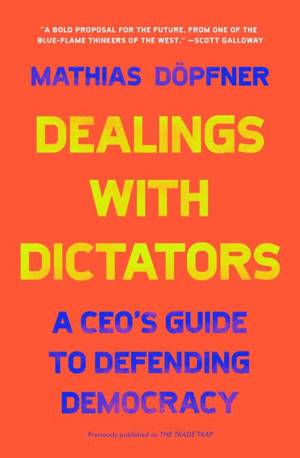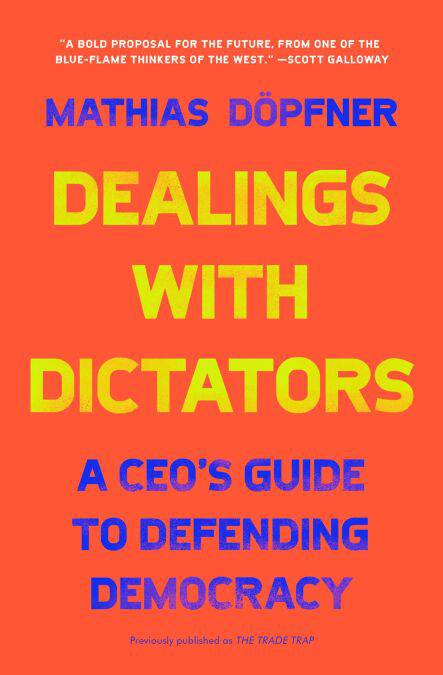
- Afhalen na 1 uur in een winkel met voorraad
- Gratis thuislevering in België vanaf € 30
- Ruim aanbod met 7 miljoen producten
- Afhalen na 1 uur in een winkel met voorraad
- Gratis thuislevering in België vanaf € 30
- Ruim aanbod met 7 miljoen producten
Zoeken
€ 15,65
+ 15 punten
Omschrijving
Global business leader Mathias Döpfner offers a “compelling” (Gideon Rachman, chief foreign affairs columnist for Financial Times) and revolutionary road map to reshape global trade, strengthen our democracy, and safeguard our freedoms.
Freedom is on the decline around the world. Autocrats in Europe, Asia, and the Middle East are undermining our open societies, human rights, and the rule of law. The Russian invasion of Ukraine was a wake-up call for the West, but the biggest threat remains China. For two generations, Americans and Europeans have believed that change will come through trade, but instead of dictatorships becoming more like Western democracies, unfettered free trade has strengthened our enemies and undermined our countries. We are caught in a trade trap, faced with the decision to choose either opportunism and submission or opposition and emancipation.
In Dealing with Dictators, one of the world’s most powerful business leaders traces the rise and costs of Western dependency on China and Russia. And he suggests a radical new approach to free trade: The establishment of a new values-based alliance of democracies. Membership is based on the adherence to three very simple criteria: the rule of law, human rights, and sustainability targets. Countries that comply with these criteria can engage in tariff-free trade with others. Those who don’t will pay prohibitive tariffs.
Sharing the author’s encounters with major global figures including Vladimir Putin, Recep Tayyip Erdogan, George W. Bush, Angela Merkel, Jack Ma, and more, Dealing with Dictators offers personal insight into the dangerous consequences of doing business with autocrats along with a bold proposal for a values-based trade policy.
Freedom is on the decline around the world. Autocrats in Europe, Asia, and the Middle East are undermining our open societies, human rights, and the rule of law. The Russian invasion of Ukraine was a wake-up call for the West, but the biggest threat remains China. For two generations, Americans and Europeans have believed that change will come through trade, but instead of dictatorships becoming more like Western democracies, unfettered free trade has strengthened our enemies and undermined our countries. We are caught in a trade trap, faced with the decision to choose either opportunism and submission or opposition and emancipation.
In Dealing with Dictators, one of the world’s most powerful business leaders traces the rise and costs of Western dependency on China and Russia. And he suggests a radical new approach to free trade: The establishment of a new values-based alliance of democracies. Membership is based on the adherence to three very simple criteria: the rule of law, human rights, and sustainability targets. Countries that comply with these criteria can engage in tariff-free trade with others. Those who don’t will pay prohibitive tariffs.
Sharing the author’s encounters with major global figures including Vladimir Putin, Recep Tayyip Erdogan, George W. Bush, Angela Merkel, Jack Ma, and more, Dealing with Dictators offers personal insight into the dangerous consequences of doing business with autocrats along with a bold proposal for a values-based trade policy.
Specificaties
Betrokkenen
- Auteur(s):
- Uitgeverij:
Inhoud
- Aantal bladzijden:
- 208
- Taal:
- Engels
Eigenschappen
- Productcode (EAN):
- 9781668016275
- Verschijningsdatum:
- 18/09/2023
- Uitvoering:
- E-book
- Beveiligd met:
- Adobe DRM
- Formaat:
- ePub

Alleen bij Standaard Boekhandel
+ 15 punten op je klantenkaart van Standaard Boekhandel
Beoordelingen
We publiceren alleen reviews die voldoen aan de voorwaarden voor reviews. Bekijk onze voorwaarden voor reviews.











